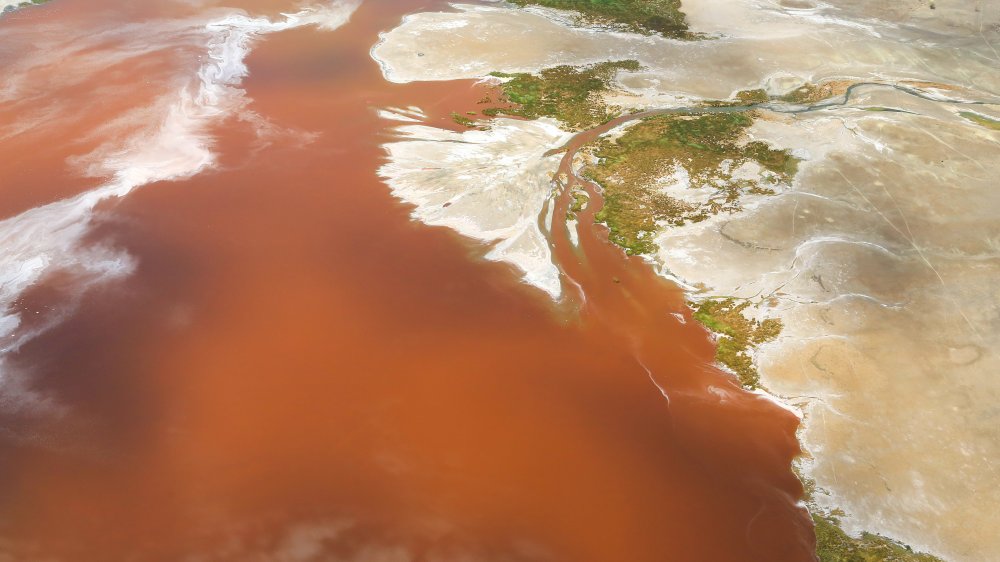Study Reveals How Life May Have Formed On Earth
German alchemist Hennig Brand wasn't searching for phosphorus when he boiled 60 or so buckets of pee. Per Live Science, Brand sought a substance that would turn metals into gold of the non-shower variety. He couldn't have realized it back in those golden days of uric, but when Brand stumbled onto phosphorus in 1669, he had discovered something even more precious than the philosopher's stone hiding in those dozens of buckets of bladder juice.
On its own, phosphorus packs a pungent punch that could knock you down for the count of forever. It stinks of garlic or matches and can cause lethal burns when inhaled or if it comes into contact with skin. But under the right conditions it might create the elixir of life.
A lake full of P
One of the great unsolved scientific mysteries – even greater than the question of whether the chicken or the egg came first — is the question of how life hatched in the first place. Scientists have long identified phosphorus as one of the primary ingredients in life's primordial omelet. Phys.org explains that the element is fundamental to forming DNA and RNA, an essential part of energy processing in cells, and is a key component of the lipid membranes that keep cells separate from their surroundings. However, for 50 years experts struggled to account for how a lifeless Earth could have furnished enough of this relatively scarce element to accommodate life.
In 2019, scientists told the so-called "phosphate problem" to go jump in a lake, where they may have finally found a fruitful solution. A study published in the Proceedings of the National Academy of Sciences found that carbonate-rich lakes may have contained high enough concentrations of phosphorus to fostering life. They drew this conclusion from looking at current carbonate-rich lakes located in California, Kenya (above), and India. Such lakes form in dry regions, become salty and alkaline due to high evaporation rates, and contain up to 50,000 times as much phosphorus as other sorts of lakes, seawater, or rivers. They also host a rich array of organisms, leading to the reasoning that the carbonate-rich lakes of roughly four billion years ago would have been "ideal" for creating life. The best part: the scientists didn't have to boil buckets of pee to make their discovery.

